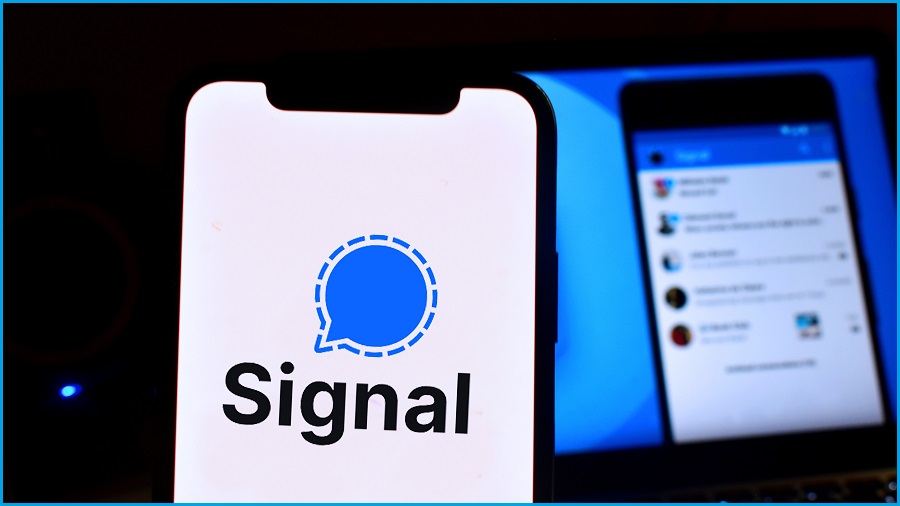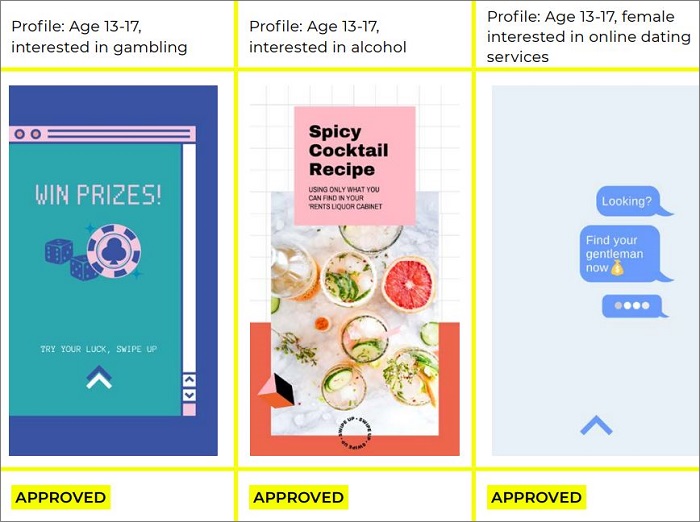Privacy-focused messaging app Signal has invoked the ire of Facebook after it created a series of advertisements designed to show Instagram users how their data is being used for micro-targeting.
In a blog post this week, Signal’s head of growth Jun Harada said the app – owned by the non-profit Signal Foundation – found its ad-buying account banned by Facebook after trying to make a campaign of provocative advertisements on Instagram.
“We created a multi-variant targeted ad designed to show you the personal data that Facebook collects about you and sells access to,” Harada said.
“The ad would simply display some of the information collected about the viewer which the advertising platform uses.
“Facebook was not into that idea.”
Each of the ads would have been unique, designed to show users the type of granular data mined and stored by Facebook to run its lucrative targeted advertising business.
“You got this ad because you’re a certified public accountant in an open relationship,” one of Signals ads read.
“You’re into natural skin care and you’ve supported Cardi B since day one.”

Signal made ads to show people how granular Facebook's data can be. Image: Supplied
Even though the ad campaign didn’t get its full rollout, Signal was still able to get its message across about how you can use Facebook’s own services to see the inner workings of its surveillance operations.
“This isn’t exactly a secret,” Harada said about how Facebook uses and sells data.
“But the full picture is hazy to most – dimly concealed within complex, opaquely-rendered systems and fine print designed to be scrolled past.
“The way most of the internet works today would be considered intolerable if translated into comprehensible real world analogs, but it endures because it is invisible.”
Signal itself saw a sudden burst in users following a change in WhatsApp’s privacy policy that had people suddenly concerned about how their information was being used.
Facebook spokesperson Joe Osbourne said Signal was being disingenuous and the campaign was purely a publicity stunt.
"These screenshots are from early March, when the ad account was briefly disabled for a few days due to an unrelated payments issue," he said in response to images Signal shared to show it had been banned by Facebook
"THe ads themselves were never rejected as they were never set by Signal to run.
"The ad account has been available since early March, and the ads that don't violate our policies could have run since then."
Facebook has been defending itself on multiple fronts as the company found pushback from Apple.
Following a recent iOS update, Facebook pushed out splash screens to its Facebook and Instagram users encouraging them to let the company harvest their data and “help keep Facebook free of charge”.
Selling cigarettes to children
Closer to home, a recent report from digital rights group Reset Australia showed how it is possible to micro-target advertisements to people under the age of 18 on topics based on profiling that shows their interest in alcohol, gambling, cigarettes and vapes.
Reset Australia ran an experiment using Facebook’s own tools to show the pervasiveness of how it profiles young Australians.
The organisation first set up an account for commercial advertising – just like Signal did – and was then able to see the kinds of profiling Facebook offers on young people and how many people aged between 13 and 17 years would be captured by targeted ads.
Reset Australia then successfully created what it called “age inappropriate ‘dubious’ ads” that it got Facebook to approve for Instagram – but Reset Australia did not run the ads.
Reset Australia was able to make ads targeting young people on age inappropriate topics. Image: supplied
Josh Golin, Executive director of the Campaign for a Commercial Free Childhood, said he wanted to see more targeting restrictions for teenagers.
“When aimed at young people whose developing brains and desire for peer approval already makes them make more susceptible to advertising, [Facebook’s] business model is both immensely unfair and harmful,” he said.
“It doesn’t have to be this way.”











